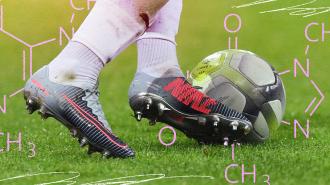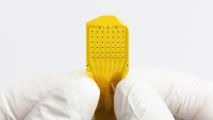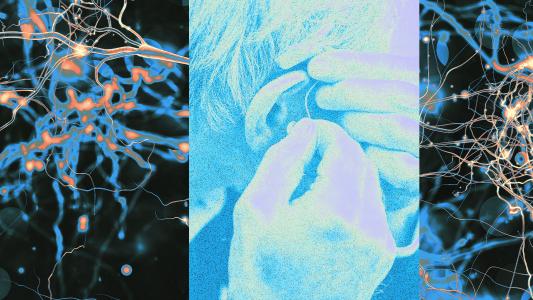Caffeine is the world’s most popular drug. In the United States, more than 90% of adults drink caffeinated beverages, with anywhere from 64 to 85% consuming at least one a day. Worldwide, caffeine consumption is so widespread that it has been identified as a potential pollutant, courtesy of the vast amounts we’re flushing away into aquatic ecosystems.
However, despite its popularity and extensive history as humanity’s drug of choice, we are only beginning to understand how caffeine affects the many functions of the human brain. According to a 2016 review of the scientific literature, low to moderate doses have been shown to heighten alertness, attention, and reaction time. It’s also well-established that too much caffeine can induce anxiety, agitation, and, of course, the jitters.
What’s less well known — and fiercely debated — is caffeine’s effect on our “higher” cognitive functions. These include such important functions as risk-taking, judgment, problem-solving, and decision-making. To investigate that question, researchers at Staffordshire University partnered with Shiraz University to develop a randomized, double-blind study that tested caffeine’s effect on decision-making.
Caffeine takes the pitch
The research team decided to test soccer players since both decision-making and accuracy are critical skills in the sport. They gathered a group of 12 players between the ages of 16-17 and put them through a series of soccer-related tests.
First, the players passed a ball several times to cones set 10 meters and 30 meters away. The closer the players got the ball to the cones the higher their score. They then performed a Loughborough soccer test — a series of drills meant to evaluate a player’s skills in dribbling, ball control, and, yes, more passing.
To test the player’s decision-making, the researchers had the players watch ten short videos of someone controlling the ball. When the video was paused, the players were given four options for building an attack opportunity and told to pick the best one. To score the test, the researchers asked three experienced coaches to rate and rank the players’ answers.
“During a football match, players must process various cues such as opponents’ positions, team organization, and time pressure. Decision-making in passing is particularly important, where a well-executed pass can create scoring opportunities,” Pooya Soltani, study author and senior lecturer in games technology at Staffordshire University, said.
The players completed the tests twice, once after taking three milligrams of caffeine per kilogram of body weight and again after taking the same amount of placebos. The researchers scheduled the two tests a week apart so they wouldn’t influence each other.
Our findings show that [performance] can be affected by caffeine intake and coaches may find these performance metrics useful to explore in training.
Pooya Soltani
The results for passing accuracy were in keeping with the scientific literature. Under the influence of caffeine, the players were more accurate in their long passes and slightly more accurate in their short passes. However, when it came to decision-making, caffeine seemed to affect their performance negatively. For the Loughborough soccer test and the pre-recorded scenarios, the players’ scores were 3.49% and 7.14% worse, respectively.
“Our findings show that [performance] can be affected by caffeine intake and coaches may find these performance metrics useful to explore in training,” Soltani said.
He added: “A number of parameters can be involved — the dosage of caffeine relative to body weight, the frequency of caffeine intake, and certain positions of the players or their playing styles. For example, a slight decrease in pass accuracy might be crucial for a midfielder but less impactful for a goalkeeper.”
The researchers published their findings in the peer-reviewed journal Behavioural Brain Research.
All things in moderation
It’s worth noting that the study is very small and has other limitations. For example, the participants were all young people, and they were performing specific tasks, sometimes combined with physical activity. As such, the results may not generalize to the larger population, different age groups, or the many other types of decisions we make (on and off the pitch).
Similarly, research looking into the influence of a drug or supplement on executive functions will face a host of outside variables that may influence things. The researchers did their best to limit such influences. For instance, they only admitted players who were moderate caffeine users, didn’t smoke or use other drugs, and didn’t have a history of certain medical conditions. However, even something like a bad night’s sleep can have an outsized impact with only 12 participants.
Finally, while the data does show that caffeine worsened decision-making, the effect size was also small. The researchers note that it may not be noticeable or relevant in the real-world situations we face daily.
Again, the study is preliminary. More research is not only welcome but needed before we can draw sweeping conclusions.
So, you don’t need to cut out your beloved morning cup o’ joe to make better decisions throughout the day. Even a soccer player may find a caffeine-generated boost of attentiveness and alertness is just the thing to keep them on their game. But it’s worth recognizing that the benefits of caffeine use may come paired with drawbacks that we need to consider and account for. And with that in mind, maybe substitute your fourth or fifth caffeinated drink for water instead — especially before your next big decision.






